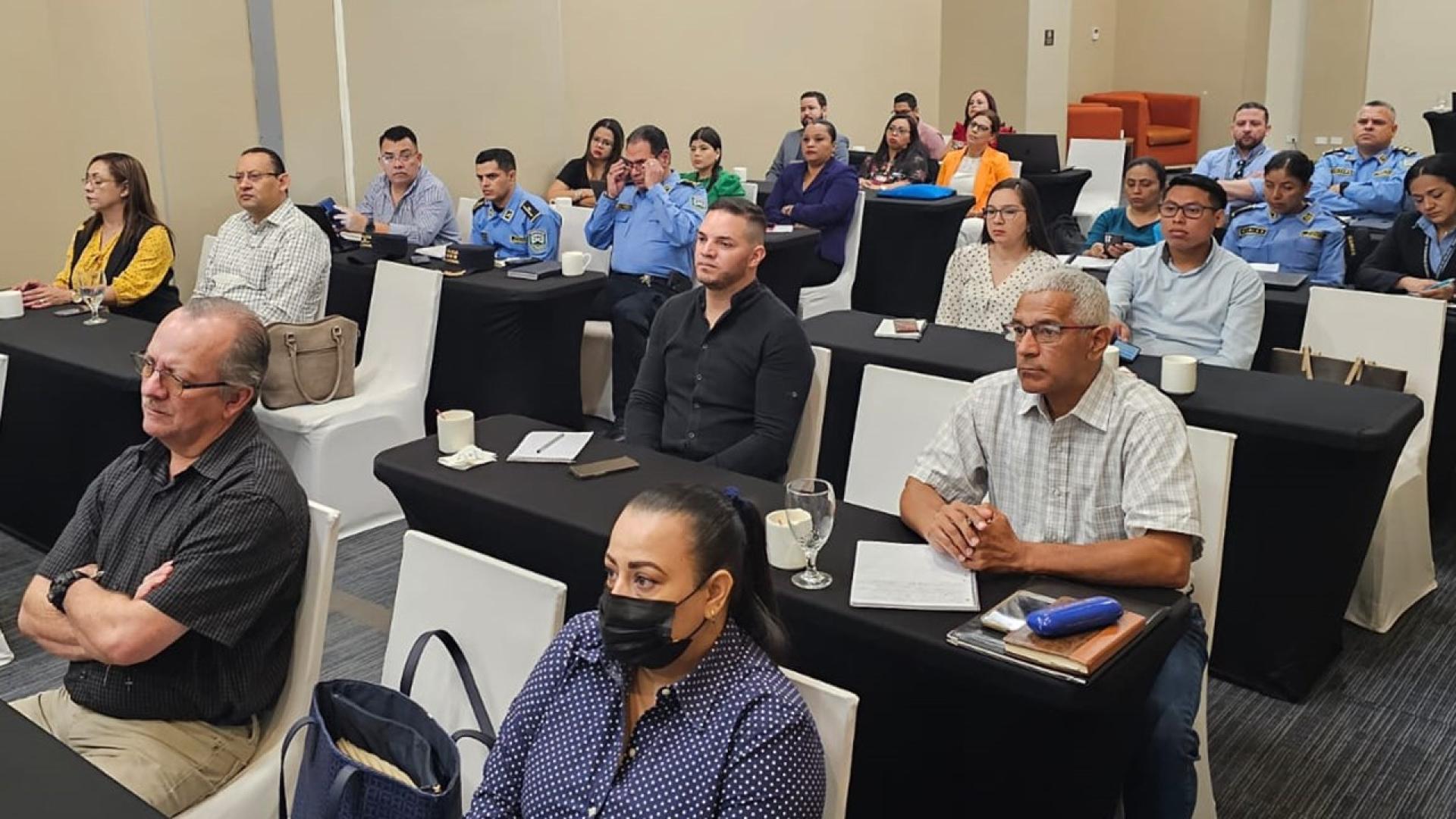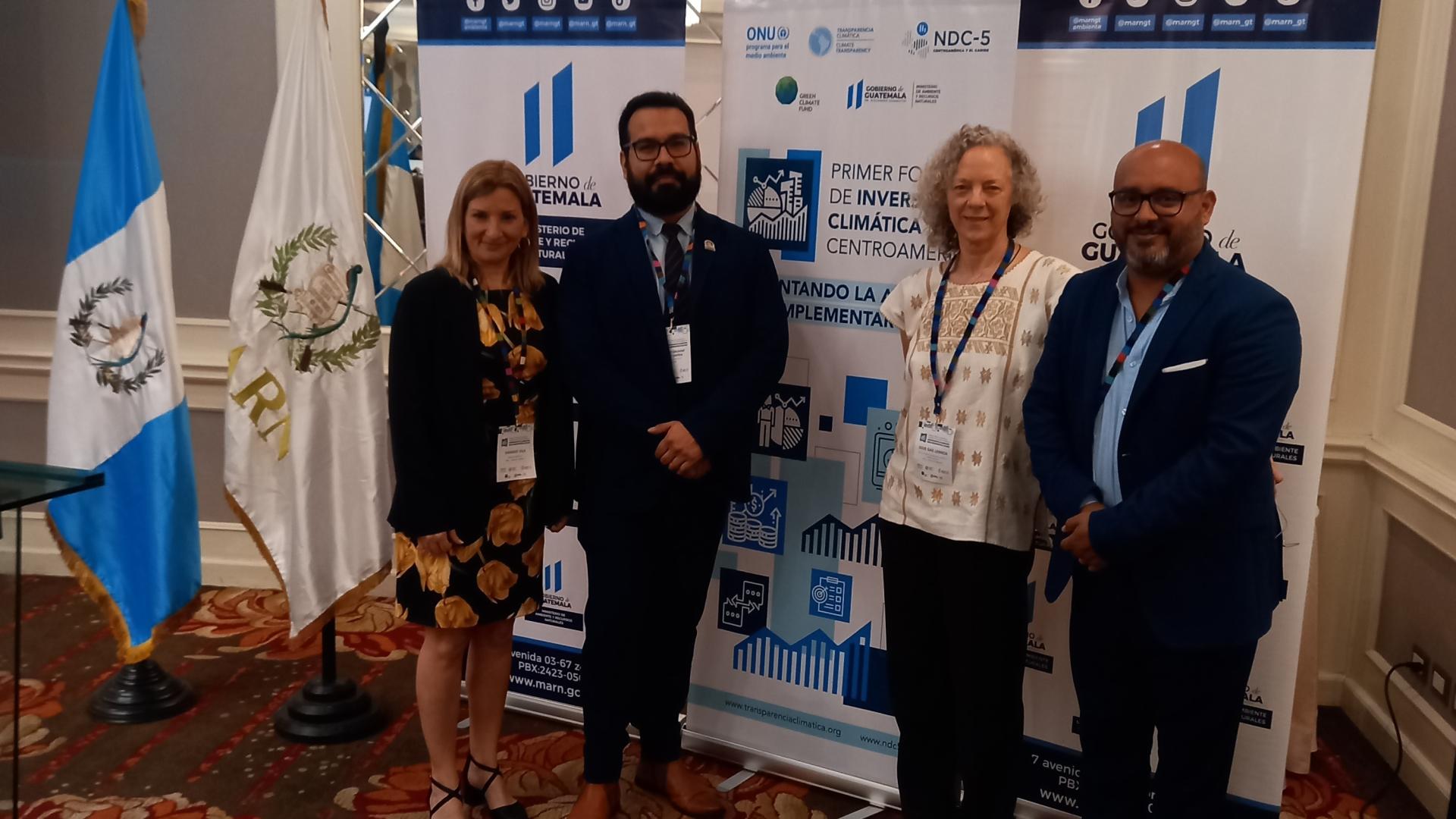Briefing note
Justification:
Climate change is magnifying the socioeconomic vulnerabilities of the region and has increasingly affected the economic evolution of productive activities such as agriculture, hydroelectric generation, the well-being and health of its inhabitants and ecosystems, generating fiscal contingencies that, when they materialize They have put pressure on the weak public finances of developing countries, particularly countries like the SICA region, one of the most exposed and vulnerable to the adverse effects of natural hazards and climate change.
Public investment is an instrument of strategic public and fiscal policy in developing countries, due to the multiplier effect on productive activities, by the generation of direct jobs, incentives for private investment, stimulator of domestic demand, and creator of the conditions for the development of other productive activities, human mobility, goods and capital, and access of the population to goods and services. National public investment systems guidelines can incentivize sustainable and inclusive solutions, gray and green infrastructures, and other nature-based ones that restore ecosystems, reduce disaster risks, and promote sustainable and inclusive adaptation to climate change. For this reason, the formulation and evaluation of public investment projects would benefit from the inclusion of analysis and measures for disaster risk reduction, as well as the inclusive response to climate change that guarantees the sustainability of such investments from the stage from design to long-term operation and maintenance.
The inclusion of these conditions in public investment projects corresponds to SDG 9 for building resilient infrastructure and SDG 13 in response to climate change, as well as priority 4 of the Sendai Framework to better rebuild in recovery, rehabilitation and reconstruction.
Background:
In the previous stages, within the framework of the Initiative on the Economics of Climate Change in Central America and the Dominican Republic, the Finance Delegates of the Regional Technical Committee, SE-COSEFIN and ECLAC developed work programs for the analysis, proposals for options for green fiscal policies and capacity building activities, including public investment. In stage three closing activities, these partners identified five potential areas of fiscal policy development to contribute to their societies' response to the SDGs, disaster risk reduction and response to climate change:
- Strengthening the capacities of the teams of the Ministries of Finance / Finance to design fiscal sustainability policies that reduce climate risks and encourage production and resilient infrastructure;
- Strengthening capacities in the design and evaluation of public investment projects to promote the implementation of climate resilience measures by the Ministries in charge of health, education, transport/road and energy infrastructure, including an economic assessment of climate risk from the design phase;
- The promotion of options for the formulation of sector budgets in order to increase climate resilience (integrated to results-based budgeting initiatives, when appropriate);
- Risk assurance and management programs at the public sector level and in economic sectors, such as agriculture;
- National mechanisms to manage and administer international climate finance.
From this initial proposal of work areas, a proposal was generated from a joint work on “Strengthening capacities in the design of public investment projects and formulation of green fiscal instruments to respond to climate change and contribute to Objectives of Sustainable Development in Central America and the Dominican Republic ”which was endorsed by the Ministers. Within this framework, ECLAC and SE-COSEFIN had been promoting a work program in 2018 and 2019 on green taxation in coordination with the Finance Delegates of the SICA countries and the Climate Change Unit of ECLAC Headquarters in Santiago. with the financing of the Euroclima + program, which was focused on supporting the design, implementation, monitoring and evaluation of public, economic and fiscal policies, including public investment and others related to climate change, disaster risk reduction and NDC compliance.
In 2019, COSUDE approached SECOSEFIN and CEPAL and agreed to design a proposal for this donor with the CTR Hacienda, already formally established within the framework of COSEFIN. After extensive deliberations, extensive work meetings, and multiple face-to-face and virtual communications, the SDC approved in December 2019 the first phase of the project that will be carried out until November 2022. With this project, new possibilities of incidence in the regulations and methodological guides, support for the design of public investment projects with greater elements of DRR and ASICC, geo-referenced information systems based on the SNIPs and capacity-building programs in the areas of the project.
Impact (Overall objective):
Contribute to disaster loss and damage reduction and response to the climate emergency by including disaster risk reduction (DRR) and sustainable and inclusive adaptation to climate change (ASICC) in the life cycle of public investment projects, conserving and improving the services provided to the population of the member countries of COSEFIN / SICA.
Effects (Project objectives):
A. National public investment systems in SICA countries improve and implement DRR and ASICC instruments in the life cycle of public investment projects.
B. COSEFIN and other key regional actors strengthen their technical capacities and implement the regional agenda in support of the integration of DRR and ASICC in public investment in SICA countries.
C. Ministries of Finance with other key national and regional institutions move forward with the integration of DRR and ASICC in fiscal policies and instruments, insurance, budgeting, and financing-related mechanisms. (Counterpart financing to be determined)
G. Effective and efficient project management with the structured participation of institutions, main actors and other strategic partners and with contingency adjustment mechanisms and accountability.
Products:
A1. Public national and regional technicians trained to integrate DRR / ASICC into the life cycle of public investment projects.
A2. Updated / improved methodological guides, policies and national technical standards for application in the life cycle of public and private investment projects (from the design stage)
A3. Pilot IP projects executed with the application of the new DRR / ASICC instruments and systematized
A4. Geographic information system platform DRR-ASICC prototype for IP designed and operational in selected countries of the region, adapted according to the needs of each country.
B1. Regional guides and regulations developed in the framework of cooperation between COSEFIN and other approved SICA secretaries
B2. Exchanges of experiences and good practices in the integration of DRR / ASICC into the IP project cycle established to promote the escalation of good practices and instruments generated by the project
B3. Geographic Information System RRD-ASICC prototype for IP designed and operational in SE-COSEFIN and other related regional entities.
C1. Fiscal policy options that facilitate DRR and ASICC, including technical analysis, guides, instrument proposals, processes with technical teams, trainings, seminars, workshops, meetings, south-south cooperation, and participation in regional and international strategic events. (Counterpart financing to be determined)
G1. Technical co-management mechanism working effectively at regional and national level with the Regional Technical Committee (CTR), SE-COSEFIN and ECLAC, Technical Operational Committee (CTO), Steering Committee (CD) and national technical groups.
G2. Management products completed: Annual operating plans, technical products, partial and final progress reports, monitoring and evaluation, lessons learned and recommendations, and social communication.
Governance Mechanism:
Regional Technical Committee
The Regional Technical Committee (CTR) is the group made up of delegates from the Ministries / Secretaries of Finance or Finance, to attend to issues related to the vulnerability of the region to climate change, producing various technical analyzes, advice and supporting discussion and formulation of response policies. It is also the working group assigned by COSEFIN to lead efforts to incorporate comprehensive disaster risk management and sustainable and inclusive adaptation to climate change into public investment at the regional level. For the purposes of this project, it is expanded to three Planning Ministries and Secretariats that, according to the institutional framework of their countries, have guiding functions over the national public investment systems.
National Technical Groups (GTN)
At the national level, the Treasury delegate - and in the indicated case, the delegate of another institution responsible for the SNIP - will coordinate a National Technical Group (GTN). The GTN will be made up of the aforementioned institutions, as well as others directly involved with the design, management and execution of public investment, risk management, climate change, environmental sustainability, climatological information and strategic planning. The GTN in each country will be responsible for proposing the activities at the national level and for supporting the execution of the activities approved by the CTR in the POAs and for presenting an annual progress report.
Directive Committee
It is the body where decisions on relevant changes to the project are made, consisting of the Director of the SDC Central America, the Executive Secretariat of COSEFIN, the Director of the ECLAC subregional headquarters in Mexico and the Head of the Unit for Agricultural Development and Climate Change (UACC) and a delegate from any other donor join this project. The Steering Committee will meet twice a year to approve the Annual Operational Plans (POA) and the annual and final reports of the first phase.
Technical Operational Committee
It is an advisory committee of the Steering Committee made up of technical officials and whose function is to provide accompaniment, technical assistance and monitoring to the project. It will be made up of a representative from the SDC, ECLAC and SE-COSEFIN. In addition, it prepares the Steering Committee's agenda and proposes strategic changes to be approved by the Steering Committee.
Updates:
The project is currently in the design phase of its operational plan, consisting of national plans and a regional one.
The project was launched in February 2020 at SICA Headquarters in San Salvador, El Salvador with the participation of the COSEFIN Executive Secretariat (SE-COSEFIN), the Economic Commission for Latin America and the Caribbean (ECLAC) and the Swiss Cooperation of Central America. The news can be read here.


